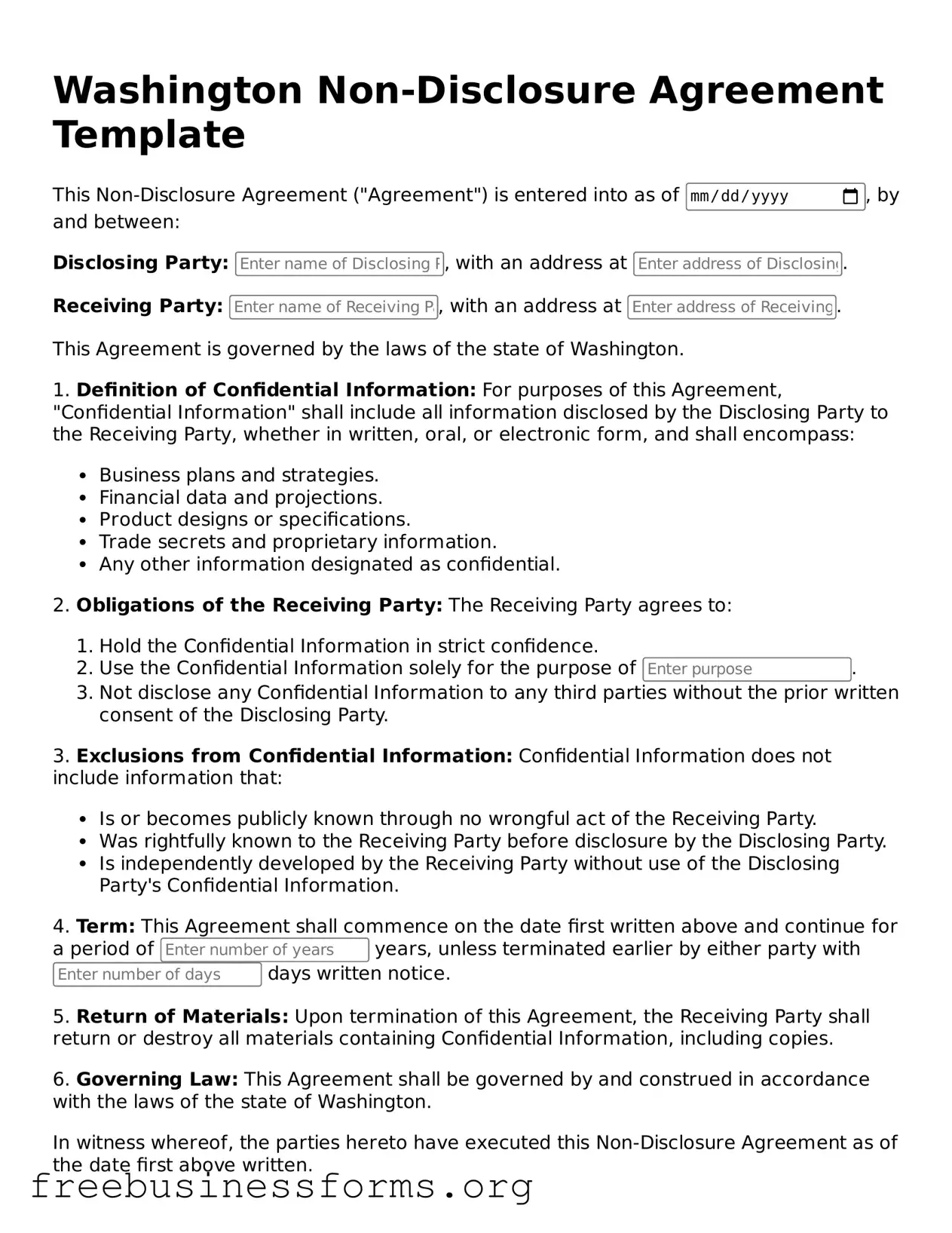Blank Non-disclosure Agreement Template for Washington
A Washington Non-disclosure Agreement (NDA) is a legal document designed to protect confidential information shared between parties. This agreement ensures that sensitive data remains private and is not disclosed to unauthorized individuals or entities. Understanding the key elements of this form is essential for anyone looking to safeguard their proprietary information in Washington State.
Open Form Here

Blank Non-disclosure Agreement Template for Washington
Open Form Here

Open Form Here
or
↓ PDF File
Quickly complete this form online
Complete your Non-disclosure Agreement online quickly — edit, save, download.